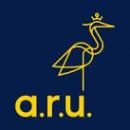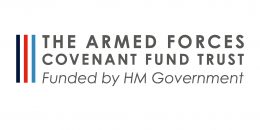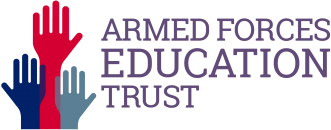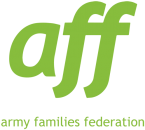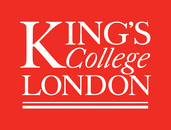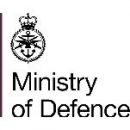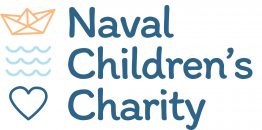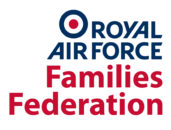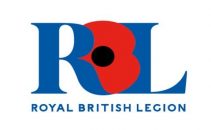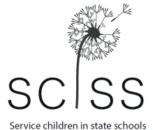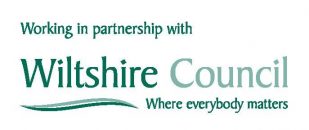Research tender invitation: Armed Forces Children in 16-19 Education – Experiences and Support
Posted in News
* Enquiry deadline 17 January (link below), submission deadline extended to 28 January 2022, 12 noon *
The SCiP Alliance is looking to commission research which will help us understand the experience of young people in Armed Forces families aged 16-19 in education. The research will identify principles of effective support for Service children in 16-19 settings, developing a framework for effective practice and identifying allied case studies.
Introduction
Very little is known about the post-16 experiences, routes and outcomes of Service children and few colleges are known to track this cohort. There is little or no robust evidence of what constitutes effective practice nor of the peculiar needs of Service children in the context of further education.
Small-scale scoping research indicated a general low level of awareness among leaders and staff in providers and highlighted distinct challenges to addressing the needs of Service children. A subsequent policy and practice summit engaged diverse stakeholders to form a set of priorities for improvement; the summit report identifies recommendations for policy makers and agencies, and providers. Several research gaps are also identified, including:
- The numbers of Service children currently in post-16 education and training across the UK
- Service child distribution (by location and by type of provision and pathway)
- How and why Service children make their post-16 choices?
- Attainment and destinations
- Evidence of need: what are the specific barriers, challenges and strengths for these young people at this stage of their education, including in relation to their earlier and subsequent experiences and outcomes?
- To what extent are these needs being met and strengths being maximised?
- What impact may post-16 experiences have on progression to HE?
- How effective is careers advice for Service children and what does effective support look like?
- What format, content and approach would be necessary for training to speak specifically to staff in this sector?
In response to the scoping research and summit findings, we wish to commission research to contribute to three strategic objectives:
- Enhance our understanding of Service Children’s 16-19 experiences
- Increase awareness of the experiences and needs of Service children with 16-19 providers
- Improve the scale and quality of practice supporting Service children’s education, progression and wellbeing in the 16-19 phase
Specifically, through qualitative research with Service children and families, and staff and leaders in 16-19 providers throughout England, this research will develop a balanced and rigorous account of the experiences and needs of Service children in support of objective 1, grow our understanding of how to achieve objective 2, and support objective 3 by developing a framework for effective practice and identifying allied case studies.
Scope of Services Required
Aims
- Understand the experiences and needs of 16–19-year-old Service children in relation to their education, progression and wellbeing;
- Understand existing and potential approaches to and practice supporting Service children in 16-19 providers;
- Develop a framework for the continuous improvement of support for Service children in 16-19 education settings;
- Build on the research conducted in the initial scoping project and the findings of the post-16 summit, to include:
- Understanding the experiences and needs of Service children in 16-19 settings;
- Engaging with a wider range of post-16 providers, adding, for example, sixth-forms and apprenticeship providers, to colleges of further education, to create a more comprehensive account of the post-16 landscape in England and characterise differences pertinent to the development of effective approaches to support provision;
- Developing a better understanding of the diversity of existing and potential opportunities and support for Service children in post-16 education, including, for example, apprenticeship provision and both universal and tailored student support;
- Secure insight from professionals in different roles in organisations, young people and parents, and policymakers in the 16-19 sector;
- Identify principles of effective support for Service children in 16-19 settings and develop a framework for the continuous improvement of effective practice in the diversity of 16-19 providers;
- Create case studies of effective practice in accordance with the principles and framework of effective support (see 3. above).
Outcomes
The research will:
- Build on the research conducted in the initial scoping project and the findings of the post-16 summit, to include:
- Understanding the experiences and needs of Service children in 16-19 settings;
- Engaging with a wider range of post-16 providers, adding, for example, sixth-forms and apprenticeship providers, to colleges of further education, to create a more comprehensive account of the post-16 landscape in England and characterise differences pertinent to the development of effective approaches to support provision;
- Developing a better understanding of the diversity of existing and potential opportunities and support for Service children in post-16 education, including, for example, apprenticeship provision and both universal and tailored student support;
- Secure insight from professionals in different roles in organisations, young people and parents, and policymakers in the 16-19 sector;
- Identify principles of effective support for Service children in 16-19 settings and develop a framework for the continuous improvement of effective practice in the diversity of 16-19 providers;
- Create case studies of effective practice in accordance with the principles and framework of effective support (see 3. above).
Outputs
- Formal report for public dissemination incorporating the context, background literature, method, findings, analysis, conclusions from the research and recommendations for the development of impactful and sustainable practice, and an executive summary.
- Case studies of existing practice representing the diversity of 16-19 contexts, type and scale of interventions, and Service children’s needs allied to the framework developed.
- Presentation with PowerPoint summary of the project, research and case studies to SCiP Alliance internal management audience and at a public project dissemination event (online or face-to-face – to be confirmed).
The budget for this work (including any VAT) is £39.6k.
The efficiency and effectiveness of the proposed service offer will be assessed using the following award criteria shown below:
| Criteria and sub criteria | Weighting % |
| Cost proposal:
| 30 |
| Experience:
| 50
|
| Service level:
| 20 |
